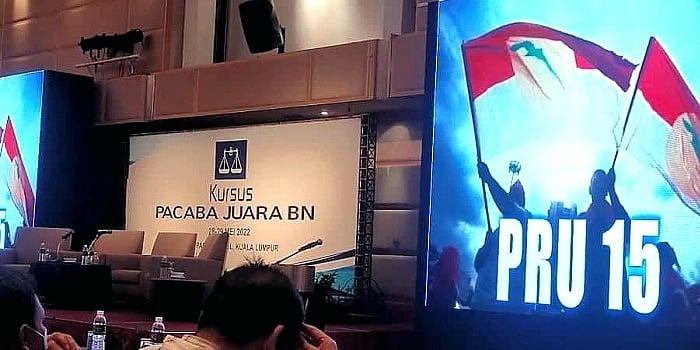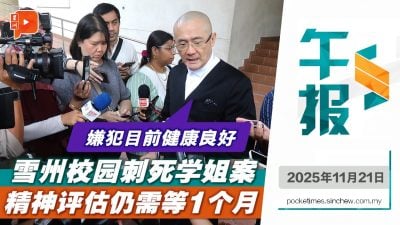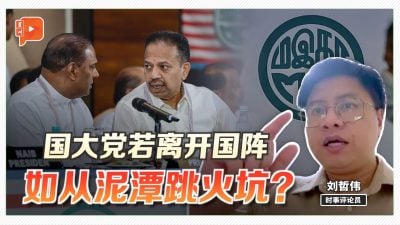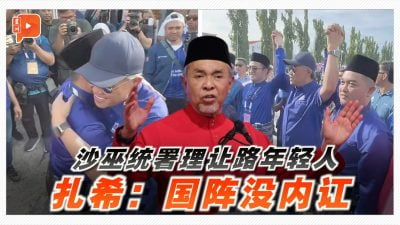BN will need to put in a lot more effort to create a more diverse political landscape. It will be hard to convince young and undecided voters to vote for them if they still cling on to the old modus operandi.
In conjunction with its 48th anniversary, Barisan Nasional held a massive celebration on June 1 to build the momentum in the run-up to the 15th general election.
In that event, leaders of BN component parties showed off their unity on the stage in high spirits, vowing to retake Putrajaya with a convincing two-thirds majority come the next election.
The coalition once ruled the country continuously for six decades. The role it has played and its contributions can never be downplayed in the country’s development and social progress since Merdeka.
From the three parties in the era of the Alliance, it later expanded to 14 parties after the establishment of the BN, each component playing their individual roles in their respective communities and functionalities.
However, due to the very different leadership styles of its leaders throughout its long ruling history, Umno has often positioned itself as the group’s tai kor, the spirit of mutual understanding and consultation among the parties being gradually eroded by an autocratic hegemony.
It was the BN spirit that spearheaded Malaysia’s phenomenal economic takeoff of the 1980s, as the country transformed itself from an agricultural to industrialized country, wooing tremendous foreign investments that put us ahead of our Asean neighbors.
Unfortunately, BN’s rule was also tainted by cronyism, uneven economic development and ethnic favoritism, not to mention corruption at various levels of governance.
Thanks to widespread frustration among the electorate, BN lost the election for the first time in its history in 2018, an unexpected eventuality being the withdrawal of most of its component parties, leaving only the last three major pillar components: Umno, MCA and MIC.
The Pakatan Harapan government which only ruled for 22 months collapsed because of the Sheraton Move, putting BN (Umno) back in the core of power through a collaboration with the newly formed Perikatan Nasional coalition.
It wasn’t until last August that Umno recaptured the prized PM post. Right from Sheraton Move up till the appointment of Umno vice president Ismail Sabri Yaakob as prime minister, this country was going through a rather long period of political turmoil and uncertainty, while changes in the voters’ political inclinations began to form.
BN started to see the hope of returning to the seat of power after winning convincingly the two state elections in Melaka and Johor, a development that has significantly boosted the coalition’s morale, in particular Umno which has since pressured PM Ismail to dissolve the parliament as soon as possible to pave way for fresh elections.
While Ismail does have his own election timetable, he is nonetheless only an Umno VP who will have to go with the party’s decisions. It is not the first time Ismail has responded to calls for a snap election by promising not to defer the election for even a second if BN (or Umno) is ready for it.

Judging from the prevailing political climate, BN indeed has the absolute upper hand following their morale-boosting victories in two state elections and a show of solidarity within Umno, contrasting with the poor morale in rivals PH and PN.
So far there is still no conclusive agreement on the “Big Tent” approach among the opposition parties torn apart by the Sheraton Move.
Politically speaking, BN has the best chances, but as Ismail has said, this is not the best time for election due to spiraling inflation and the consequent public frustration, which is very true. The PM needs to do more to show to the rakyat his sincerity in establishing a Keluarga Malaysia.
Meanwhile, other leaders in the party beg to differ, feeling that they must not let go of such a golden opportunity to call for an election because there are always potential unknowns, such as dilution of Malay votes, while given its experience it won’t be problem for BN to solve the economic woes so long as its administration is strong enough.
What BN cannot afford to overlook is that both the ruling and opposition camps now have administrative experiences after the last general election. While many might feel frustrated and become politically indifferent, as evidenced in the last two state elections, they might look at political parties quite differently now.
BN, especially Umno, seems to have visualized only the one-sided picture of its imminent thumping victory without realizing that their pre-2018 administrative model might not strike a chord with our voters today.
In other words, BN needs to wake up from their deep sleep and come to terms with the new reality and changes, having lost its power momentarily after the last election.
As one of the clauses in BN’s GE15 proclamation jointly signed by leaders of its component parties, the coalition needs to support moderation and cherish the values of greater openness and inclusiveness in the development of this country.
This is that kind of government all Malaysians are yearning for. BN must walk the talk and forego its antiquated “divide and rule” approach.
Notably, Ahmad Zahid quoted The Art of War of ancient China in his address, with the corresponding Chinese text projected onto the screen in an attempt to protrude BN’s moderate image in the convention.
Such a detail is sufficient to make the voters, Chinese in particular, see that BN has indeed changed. The local Chinese community has been rejecting BN for years mainly because the coalition has never proved that it embraces diversity in running this country.
Well, while Chinese voters may have experienced changes in their political mindsets after 2018, given the fact there are a lot more options open to them now, no single political party or alliance can be 100% sure it has their full support.
BN will need to put in a lot more effort to create a more diverse political landscape. It will be hard to convince young and undecided voters to vote for them if they still cling on to the old modus operandi.
ADVERTISEMENT
ADVERTISEMENT








































